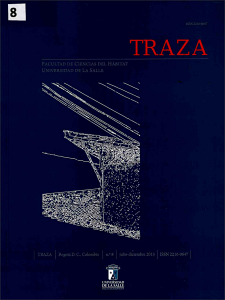Abstract
The present article was written with the support of La Salle University’s Research Center on Habitat, Development and Peace (CIHDEP, for its initials in Spanish). The purpose is to provide an answer as to why migration processes in the municipality of Yopal and borders generate territorial disarticulation at the expense of the quality of life of their people. Thus, the paper ventures into theoretical and conceptual aspects related to new rurality and territory as spatiality and a complex unit that combine the spatial and multidimensional nature of human beings, drawing on methodological processes, structured observation, stories, the redefinition of experiences in informal settlements and population centers; then, a characterization of migration processes in the municipality of Yopal is presented, the consequences of which are reflected in the disarticulation of urban and rural territory. A characterization of migration processes that typify territorial disarticulation is found: migration to the urban area, direct migration to populated centers, phased migration and rotating migration, wherein a potential production alternative to oil exploitation, sociocultural hybridization and the diversity of the potential of natural resource is identified.Downloads
Download data is not yet available.



